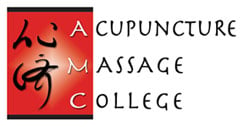Brain foods improve cognitive fitness and enhance mental power. It’s possible to improve the brain’s performance by including brain foods in our diet. Eating the right foods can boost IQ, improve mood and concentration and sharpen memory.
A diet containing specific brain foods also helps to decrease the effects of oxidation and inflammation on the brain. The development of neuronal degeneration such as Parkinson’s and Alzheimer’s disease has been thought to be caused by oxidative stress on the brain. Foods rich in antioxidants, omega-3 fatty acids, protein, B vitamins and other vitamins and minerals contain brain-enhancing and general health benefit properties.
Antioxidants
Products of normal metabolism known as free radicals can damage brain cells. Antioxidants found in vegetables and fruits neutralize free radicals before they can harm cells. Vegetables are a great source of antioxidants, which may reduce the risk of developing cognitive impairment by diminishing oxidative stress. Spinach, Brussels sprouts, broccoli, and cauliflower are especially rich in antioxidants.
Like vegetables, fruits are also an excellent source of antioxidants. Some of the healthiest options are blackberries, cranberries, raspberries, oranges, cherries, kiwis, strawberries, plums, red grapes, and avocados. Blueberries, also known as the ‘brain berry,’ contain a high level of antioxidants. Blueberries protect the brain through their antioxidant and anti-inflammatory action.
In addition to vegetables and fruits, Japanese Matcha (Tencha-grade green tea powder), mixed into hot water, is an excellent source of antioxidants and C and A vitamins. EGCG (Epigallocatechin Gallate, a compound found in green teas) possesses anti-aging, anti-cancer and general health benefits. Matcha contains higher amounts of EGCG than regular brewed green tea, including Sencha green tea. Matcha also has over 30 times the antioxidant levels of blueberries.
Cacao beans, found in chocolate, are an excellent source of antioxidants, catechins and flavonoids. Cacao beans improve cognitive processes and mood states. Most candy and chocolate products contain low levels of cacao bean. Health properties and high levels of cacao bean are found in high cacao percentage dark chocolate bars and organic non-alkalized cocoa powders.
Coffee beans are rich in antioxidants, vitamins and minerals and amino acids. Freshly-ground organic coffee powder carries several brain and general health properties. Coffee consumption has been linked with reduced risk of Alzheimer’s, Dementia and other mental diseases.
Omega-3 fatty acids
Omega-3 fatty acids, found in salmon, tuna, sardines, herring, mackerel, flax seed oil, olive oil, and walnuts have been linked to improved memory, alertness and increased attention span. Omega-3s are essential to optimal brain performance. Omega-3 diet deficiencies can lead to poor memory, low IQ, learning disabilities, dyslexia, and ADD.
Omega-3s are known to be particularly crucial constituents of the outer membrane of brain cells. DHA is a particular omega-3 fatty acid found in fish that appears to boost brain development. Wild salmon is an excellent food for brain health. One of the best sources of Essential Fatty Acids (such as omega-3); wild salmon is a rich source of protein and can reduce risk of stroke, Dementia and Alzheimer’s.
Protein
The brain’s neurons are basically composed of fat, but they communicate with each other through proteins that we eat. Proteins are essential to make neurotransmitters which are vital for the thinking process. Include plenty of protein rich foods in your diet, such as lean meat, dairy products, seafood, poultry, seeds, and nuts. Protein foods enhance the brain’s production of dopamine, a natural brain chemical that optimizes alertness and enhances mental tasks like memory, concentration and reaction time.
B Vitamins
B vitamins aid in the production of neurotransmitters. Particularly important for the brain, B vitamins enhance mental performance and play a role in producing energy. B vitamins are found in broccoli, asparagus, carrots, whole grains, seafood, eggs, dairy products, spinach, and leafy greens. Choline, the fat-like B vitamin in eggs, enhances memory and reaction time and minimizes fatigue. In addition to B vitamins, vitamins A, C and E are antioxidants which can promote and preserve memory.
Minerals are also critical to mental functioning and performance. Magnesium and manganese are needed for brain energy. Sodium, potassium and calcium are important in the thinking process and facilitate the transmission of messages.
Iron is also required to carry oxygen to the brain cells and aids in the formation of brain neurotransmitters, which affect attention and learning capacities. Sources of iron include lean beef, whole grain breakfast cereals, whole grain breads, raisins, dried apricots, legumes, and bran muffins.
Brain foods, when added to your diet, optimize brain health, have anti-aging properties and increase longevity. Brain foods should be incorporated into a healthy food diet along with well-being practices and physical exercise.
For information about Acupuncture & Massage College’s Oriental Medicine and Massage Therapy programs call Joe Calareso at (305) 595-9500. For information about nutrition for health and wellness ask for Dr. Richard Browne, Acupuncture Physician.

 (305) 595-9500
(305) 595-9500






